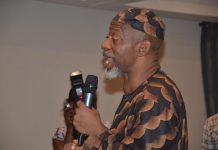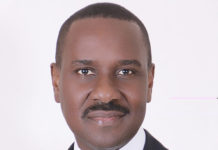In this special report, we look at the gradual ascension of the Fifth Generation (5G) network as Nigerians await a new wave of revolution.
Mobile wireless communication in Nigeria has evolved over the years. From the analog-based technology of 1G to the digital wireless systems of 2G, then 3G and the 4G. Today, in Nigeria and some other countries, despite the enhanced 4G technology already in use and due to the ever-increasing demand for bandwidth, attention has now shifted to the next generation wireless technology, the 5G. In fact, the 5G network technology has hit the mainstream fast. According to a Global mobile Suppliers Association (GSA) report, over 378 cities in 58 countries had 5G networks by the end of 2021, up from 38 about a year ago. It is in fact expected that 5G will reach one billion users in three and half years, compared with four years for 4G and 12 years for 3G.
In 2019, Nigeria became the first West African country to initiate 5G network trials, when its biggest telecoms provider, MTN Nigeria, ran spectrum tests in its offices across two locations, Lagos and Calabar. With support from mobile operators like Huawei, ZTE and Ericsson, the initial demos proved successful. With the help of MTN Nigeria, though on a pilot level, in August, Nigeria joined South Africa and Kenya as countries that have deployed the 5G technology in Africa. By September, MTN Nigeria rolled out commercial 5G technology in Lagos, with a promise to launch the network in six other cities, including Abuja, Port Harcourt, Ibadan, Kano, Owerri and Maiduguri before the year ends.
While MTN was yet to reveal the level of investment expected to go into full deployment of the technology in the country, the telecommunications firm, however, disclosed that about 81 Lagos communities can now conveniently access 5G services in their neighbourhood. The list of communities, according to MTN include: Abijoh Village, Abule Oja, Aguda, Ajao Estate, Badore, Chevron Estate, Dolphin Estate Idi-Oro, Ilupeju, Langbasa, Magboro, Mushin, Sabo Yaba, and Victoria Garden City, among others. Recall that last December, MTN and Mafab Communications emerged winners of the 3.5GHz spectrum auction for 5G deployment and both coughed out over $500 million by February 24, 2022 for the license. Due to lack of Universal Access Service License (UASL) and lack of existing infrastructure to roll-out, Mafab asked for a five-month extension, which the Nigerian Communications Commission (NCC) granted. So, Mafab is expected to roll-out 5G by January 2023.
Benefits of 5G Revolution
For emphasis, the 5G network is the advanced form of 2G, 3G and 4G. Nigeria currently operates the last three and is moving gradually into the 5G era. Large numbers of advanced countries have adopted the 5G network, while others are considering its adoption in the next few years, because of its high connectivity speed that will drive new technologies like Artificial Intelligence (AI), Machine Learning (ML) and Internet of Things (IoTs), among others. 5G is designed to be a system that will bring flexibility to mobile, fixed and broadcast networks and support more extensive data requirements. The technology will impact the way interactions are done by enabling in some cases, unforeseen business models and enhanced lifestyles, all resulting in increased productivity.
5G wireless technology is meant to deliver higher data speeds, ultra-low latency, more reliability, massive network capacity, increased availability, and a more uniform user experience to more users. 5G has the potential to provide 20 times faster data speeds and carries a massive amount of data for a large number of simultaneous users. So, users in high-density areas – like airports, stadiums or urban areas – can still experience the fast speeds and low latency of 5G service. The 5G network is designed to carry data up to 10 times faster than 4G networks. This means high definition (HD) movies can be downloaded in seconds. 5G tops out at 10 gigabits per second (Gbps). 5G is 10 to 100 times faster than 4G. The use of shorter frequencies (millimeter waves between 30GHz and 300GHz) for 5G networks is the reason why 5G is so fast.
According to reports, while it takes 22 minutes to download a high-definition movie on a 4G network, it will only take 32 seconds on a 5G network. Based on its elasticity, 5G networks are also projected to be able to service a million devices within a square kilometre — 100 times more than 4G networks can handle in the same area.
How 5G enables business development

5G, by using shorter, higher-frequency bands of the radio spectrum, offers greater load capacity, faster speeds and lower latency. While 4G brought mass video streaming, real-time media consumption, reliable payment processing, multi-player gaming, always-on social networking and other use cases that enabled new business models, 5G will revolutionise these new-age industries and transform them in ways that haven’t yet been conceptualised. Research from GSMA estimates that 5G will contribute about $565 billion to the global economy by 2034. “You need to think about the impact and how to harness the new capabilities of speed and low latency of 5G,” said Chris Pearson, President of 5G Americas, an industry trade organisation of telecommunications providers and manufacturers. “If you don’t start thinking about 5G and how it could affect or help your business, you’re going to have a competitor who will.”
No technology comes cheap
As it were at the beginning, it is still the same now in terms of initial cost of getting any technology. In 2001, when the telecommunications revolution began in Nigeria, subscribers paid as much as N70, 000 to own a Subscriber Identification Module (SIM) card, not to talk of the mobile phone itself. But 20 years later, operators are even giving away SIMs. While the operators may not give out 5G technology outrightly at the start, it is expected that there will be a drop in the cost of procurement later. Speaking on the availability of the technology in the hands of Nigerians, Chairman, Association of Licensed Telecoms Operators of Nigeria (ALTON), Gbenga Adebayo, said all releases by original equipment manufacturers (OEMs) in the last year or so are 5G ready.
Adebayo said a lot of Android phones now are ready to go on 5G technology. For individuals who might want to use 5G, they may need to change their devices, but this might not happen for those who do not have need for it. He said as long as there are many countries rolling out 5G, when the volume increases, the price will drop. But MTN has advised its customers that want to access 5G network and enjoy its benefits, to buy compatible devices, such as routers and mobile phones, which can be pre-ordered from designated MTN walk-in stores and online via the MTN Nigeria website and e-marketplace. The pre-ordered devices can be picked up or delivered to customers. MTN is currently advertising its 5G router for N50, 000.
Nigeria requires moreinfrastructures
The Executive Director, Centre for Cyberspace Studies, Nasarawa State University, Keffi, Uche Mbanaso, said Nigeria cannot be left out of the global transition of technology. Rolling out the technology will enhance the country’s digital economy stride, he said, adding that the challenge in the industry is to key into the opportunity to harness the potential. “What makes 5G better is the ubiquity and proximity of the base transceiver station (BTS) to the user. Many towers will come to the streets which will make it easier for people to connect and connect to other devices. That is the vitality of the 5G network because it is much higher frequency and has wavelengths. Because of this wavelength, the BTS has to be very close. So, you can see thousands of these BTS on the street. That is what enhances the speed and other benefits,” he said.
The telecoms sector will require over N1.04trillion investment to bridge the existing deficit in telecoms infrastructure, especially BTS across the country. According to statistics released by the regulator of the telecoms industry, the Nigerian Communications Commission (NCC), BTS deployment in the country has risen from 30,000 to 54,460. This figure shows a deficit of 26,540 from the 80,000 BTS required for effective coverage of the country’s huge land mass. The BTS consists of 3G and 4G; while Fibre Optic Transmission cables expanded from 47,000km to 54,725km in the last five years, resulting in improved broadband/telecoms service delivery in the country. According to the former President, Association of Telecoms Companies of Nigeria (ATCON), Olusola Teniola, depending on whether it is 2G or 3G being offered by the BTS, the usual prices for an installed one is between $7,000 and $95,000. Therefore, at about $95,000 per BTS, this will amount to $2.52billion (N1.04trillion). Teniola had given this projection before the hike in inflation, long before the naira started its free fall against the dollar, which is the currency of the ICT sector.
From his perspective, the Chief Executive Officer, Spectranet, Ajay Awasthi, said the country requires another three years for the network to stabilise. Awasthi, who gave the projection, attributed the position to the lack of fibre infrastructure in the country. As at the end of 2021, the Nigerian Communications Commission (NCC) said there were 49, 579 towers by mobile and fixed operators, as well as collocation and infrastructure companies. It added that the operators reported a total number of 38,288 base stations, while fiber optics deployment stood at 86,057km (terrestrial fiber and submarine cable)
Awasthi said the status of fibre deployment in Nigeria was still low compared to the population, which would hinder smooth 5G connectivity. The Spectranet boss said 5G was needed for very high speed, low latency and its capacity to drive applications such as Internet of Things (IoT) among others “but to provide this high speed and low latency, there is need for greater fibre. “If you look at the number of towers, which are connected to fibre, knowing that 5G would pass the towers through the antennas, with backhaul and switches among others, connectivity can only be achieved with fibre infrastructure, not through microwave because of latency and capacity issues.
“There is hardly any fibre in Nigeria at this point. If you look at most of the European countries, the number of towers connected to fibres could be 50 to 60 per cent. If you look at the number of towers, which are connected to fibre in Nigeria, I am not sure it is up to 20 per cent and could even be lower. Unless that is sorted out, 5G will remain a pipe dream in the country.” Awasthi, who submitted that true 5G experience is going to be in about two or three years from now, said tower companies have not started connecting to fibre right now and unless that happens, it may be difficult to push 5G. He said that users will get it, but it is going to be compromised. “Then the latency will be high as it is with 4G because you are using a microwave, but your speed will still be an issue.”
Going forward
Adebayo said 5G remains a technology that the country should embrace. According to him, if these technologies are not harnessed and embraced adequately in Nigeria, “neighbouring countries would adopt and slow down our own progress. It will push Nigeria back because there is no kind of service you will need on the 5G networks that is not there. Globally, part of the progress made is the acceptance of technology as they evolve.” The Chairman of the Association of Telecommunications Companies of Nigeria (ATCON), Ikechukwu Nnamani, who admitted that Nigeria should not be left behind, as far as emerging technologies are concerned, said reduced spectrum cost would help operators to deliver 5G service to subscribers at an affordable rate. “There is no doubt that the operators are going to spend a lot of money to deploy 5G and they will need to recoup their investments from the service. The only way the cost can be lowered is for the telecoms regulator to make the 5G spectrum cost as low as possible,” he said.
The promise of 5G is much more than faster network speeds. It is a real and present opportunity for businesses to embark on digital transformation at scale. As adoption and usage increases, the benefits to both businesses and individuals become clearer. “Whatever we do now with our smartphones we’ll be able to do faster and better,” said Ian Fogg, Vice President of Analysis at OpenSignal, a mobile data analytics company. “Think of smart glasses featuring augmented reality, mobile virtual reality, much higher quality video, the internet of things making cities smarter. But what’s really exciting is all the new services that will be built that we can’t foresee.”
According to Fogg, organisations looking to future-proof their systems and products are recognising the potentials and immediate benefits of 5G – its fast, reliable transmission capabilities are taking enterprise mobility to the next level by enabling collaboration and increasing productivity at remote locations.



























